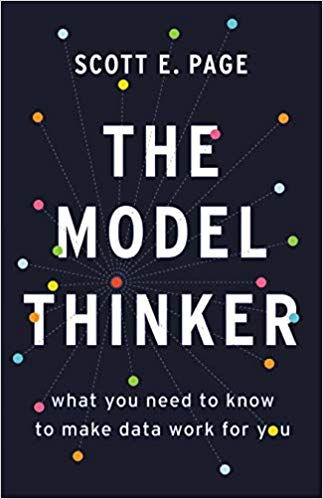The Model Thinker is a book about models. Models are not words, but formal mathematical representations that are put together to help us understand the world. This book looks at how people can apply a many-model thinking approach to understand these complex systems to find solutions. We live in an era of big data; from our phones, to online shopping, to our social media pages, data is everywhere. It is collected, with or without our consent. Our social data, as Scott Page elaborates in his book, is about our economic, social and political phenomena, which documents only moments or intervals in time. It rarely tells the universal truth. Our economic, social and political worlds are rarely stationary. As impressive as the data may be, it is no panacea; hence, we need models to make sense.
Do models make us smarter? Models vary in their assumptions and their structures. What they do is create multiple artificial worlds for our minds to explore. Models however, share three common characteristics: they simplify and strip away unnecessary details; abstracting from reality; or creating anew from whole cloth. They formalize making precise definitions. By doing the former two, what models help in achieving is creating tractable spaces within which we can work through logic, generate hypothesis, design solutions and fit data. The logic behind the many-model approach is built on the idea that we achieve wisdom through a multiplicity of lenses, and how we can also build these lattices of models to be able to confront the complexity of challenges.
Page feels that to rely on a single model is hubris; it invites disaster. He argues: we need many models to make sense of complex systems like politics, economy, international relations; or the brain exhibits ever-changing emergent structures and patterns that lie between the ordered and the random. By definition, complex phenomena are difficult to explain, evolve, or predict. This is where we are confronted with the disconnect, as a single model is highly unlikely to be able to predict patterns in international trade policy, trends in consumer products industry or adaptive responses within the brain.

